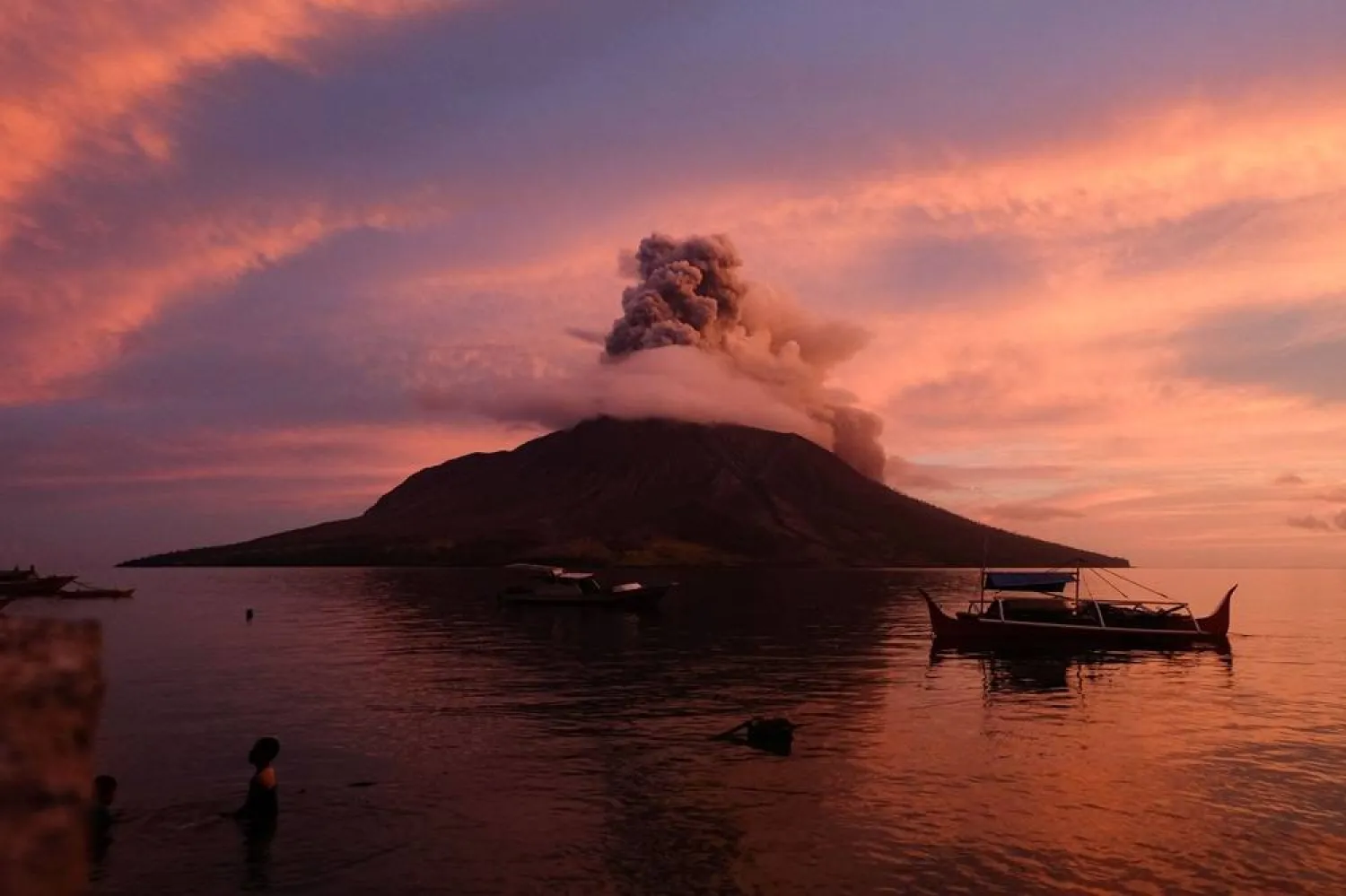More than 2,100 people living near an erupting volcano on Indonesia's Sulawesi Island were evacuated Friday due to the dangers of spreading ash, falling rocks, hot volcanic clouds and the possibility of a tsunami.
Indonesia's Center for Volcanology and Geological Hazard Mitigation recorded at least three eruptions since Friday afternoon, with the maximum height of the eruption column reaching 1,200 meters (3,900 feet).
An international airport in Manado city, less than 100 kilometers (60 miles) from the erupting Mount Ruang, is still temporarily closed as volcanic ash was spewed into the air.
Satellite imagery from the Meteorology, Climatology and Geophysics Agency shows the ash has spread to the west, northwest, northeast and southeast, covering Manado and North Minahasa, according to a statement from Indonesia’s Transportation Ministry.
“We are still monitoring developments in the eruption of Mount Ruang and coordinating with relevant stakeholders ... to anticipate the necessary actions to ensure flight safety, security and comfort,” said Ambar Suryoko, head of the regional airport authority.
More than 11,000 people were told to leave their homes that were located in the affected area. A joint team from the local authorities combed the villages surrounding the volcano and evacuated residents to safer areas by boat.
Officials worry that part of the volcano could collapse into the sea and cause a tsunami, as happened in an eruption there in 1871.
Houses, roads and other buildings were covered by gray volcanic ash, and many roofs were broken by debris spewed from the eruption.
Mount Ruang saw at least five large eruptions Wednesday, causing the Center for Volcanology and Geological Hazard Mitigation to issue its highest level of alert. People were ordered to stay at least 6 kilometers (3.7 miles) from the 725-meter (2,378-foot) mountain.
The observation from the agency on Friday said white smoke was rising from the main crater with medium to thick intensity.
East of the volcano, Tagulandang Island could be at risk if a collapse occurred. Its residents were among those being told to evacuate. Indonesia’s National Disaster Mitigation Agency said residents would be relocated to Manado, a journey of 6 hours by boat.
Indonesia, an archipelago of 270 million people, has 120 active volcanoes. It is prone to volcanic activity because it sits along the “Ring of Fire,” a horseshoe-shaped series of seismic fault lines around the Pacific Ocean.









